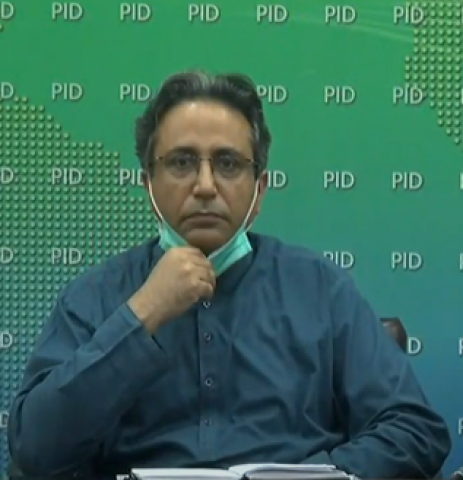SAPM Babar ‘prima facie’ responsible for fuel crisis
LHC CJ expresses concerns over unelected individuals running govt affairs

The Lahore High Court on Thursday observed that Special Assistant to the PM on Petroleum Nadeem Babar was prima facie responsible for the recent fuel crisis as he was running the affairs of energy ministry’s petroleum division.
LHC Chief Justice Qasim Khan was hearing petitions against the unavailability of fuel across the country last month because of hoarding and the subsequent price hike of petroleum prices.
The LHC CJ expressed his concerns over unelected individuals running the affairs of the government.
“Those who are elected, even if they are ministers, have to face the people,” Justice Khan noted.
“But unelected individuals [running government affairs] can pack up their bags and return to their offices after it is all over.”
At the start of proceedings, the amicus curie read out the minutes of a recent cabinet meeting on the fuel crisis before the court.
According to the minutes, Prime Minister Imran Khan had ordered strict action against those involved in creating a shortage of fuel. He also issued instructions to ensure the availability of petroleum products.
The LHC CJ inquired as what action had been taken on the premier’s orders.
He added that whoever took down the minutes of the meeting seemed to be appeasing the prime minister.
“I am astonished to hear the minutes of the meeting.”
The LHC CJ noted that SAPM Babar had not disclosed that the supply of petrol was affected and attributed the shortage to people buying more fuel.
The judge observed that the minutes of the cabinet meeting gave the impression that the oil industry was responsible for the fuel shortage.
The energy ministry’s petroleum division shifted the blame on the Oil and Gas Regulatory Authority (Ogra), he added.
Justice Khan noted that either the petroleum ministry or Ogra had not done their job or both of them were to blame.
Attorney General for Pakistan (AGP) Khalid Javed Khan submitted a list to the court containing the proposed names for a commission to probe into the fuel crisis. The AGP implored the court that the proposed names should not be shared with anyone until they were appointed members of the commission.
The LHC CJ inquired why the federal government had jacked up the prices of petroleum products on June 26 if Ogra had not sent a summary for increasing them. The attorney general replied that he could not defend this act.
The judge then granted six weeks to the federal government for constituting the commission.
The court will decide the matter if commission’s report does not satisfy it.
During the previous hearing, Justice Khan had sought names from the AGP for a commission that would investigate the recent petrol crisis in the country. The judge added that the court would suggest names itself if the ones suggested by the AGP were unsatisfactory.
The LHC CJ also noted that the exorbitant increase in the prices of petroleum products on June 26 instead of the start of the month had apparently enabled the fuel mafia to make profits worth billions of rupees.
The LHC CJ observed that it appeared as if some “big leagues” were involved in the petrol crisis.
“It seems the oil mafia created an artificial shortage of petrol to benefit from it,” he noted.
“The government increases the prices of petroleum products on the first of each month, but by raising the prices on June 26, it enabled the petroleum mafia to make billions of rupees,” he added. “The crisis cannot be controlled until those behind it are caught.”


















COMMENTS
Comments are moderated and generally will be posted if they are on-topic and not abusive.
For more information, please see our Comments FAQ